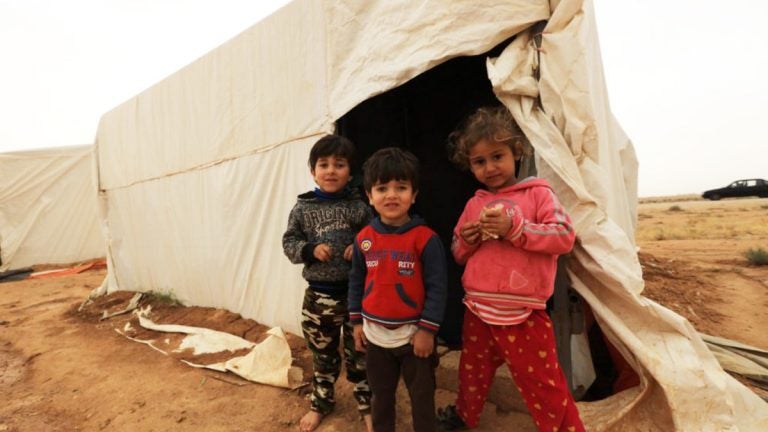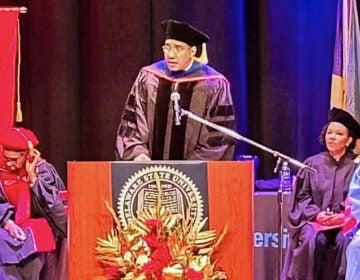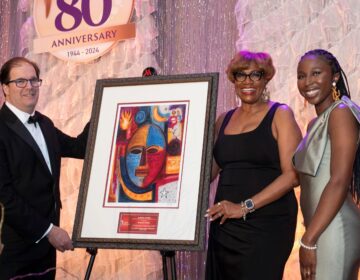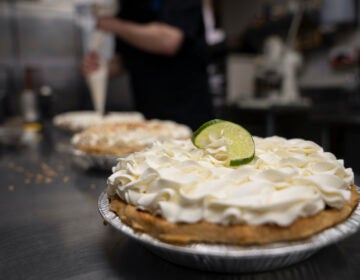Student voice: ‘Then one day a bomb exploded during my geometry class’
Fleeing Syria to pursue safety, education and a socially just world.

MAFRAQ, Jordan — Syrian refugee children at a settlement near the Jordan-Syria border on April 26, 2018. (© Mohammad Abu Ghosh/Xinhua via ZUMA Wire)
This story originally appeared on The Hechinger Report
—
There are many things people don’t know about life in my home country of Syria.
First, it was an incredibly beautiful, and incredibly normal, place in which to grow up. My friends and I were typical teenagers who looked forward to going out on Friday nights and the arrival of summer break.
It is also a country that, culturally, places a high value on education. We were all expected to perform well in school, and attend and graduate from college. The need for and importance of education was so well understood, it seemed as much a basic right as good health or personal safety.
But one day, very quickly, all of those rights were shattered.
That Tuesday morning in 2011, our neighborhood was viciously bombed. My days as a typical teenager were over, as was the normalcy of the lives of my 20 million fellow Syrians.
It speaks to Syrians’ prioritizing of education that my school continued to operate despite the growing safety challenges. Frequent power outages meant studying by candlelight, without internet access, often without heat or running water. I have vivid memories of riding the bus to school, looking out the windows and seeing only empty streets.
Then one day a bomb exploded during my geometry class, this time within a block from my school. The windows shattered, gunfire rang out, and we were hurried into an underground shelter. In Syria, students are not allowed to have cell phones in school, so it was many hours before we were able to notify our parents that we were safe. After that, my parents refused to send me back to school.
It was then that we had to make the hard decisions. Our right to safety was compromised, and along with it my right to, and hopes for, a formal education. With my mother temporarily in the United States for a fellowship at Tulane University, we made an ambitious plan to join her in New Orleans, knowing it was a plan unlikely to come to fruition.
Because the U.S. embassy in Syria had closed due to the unrest and out of concern for the staff’s safety, we traveled to Jordan to apply for visas. We drove for hours and hours through war zones, crossing borders and checkpoints. The journey itself was perilous. At the embassy, we waited many more hours for our interviews and watched as most of the other applicants were rejected. It was a demoralizing wait.
Fortunately, our visa applications were approved. We were the lucky ones.
Once in New Orleans, I got back to the work of finishing my education. I was now among the 2.8 million first-generation immigrant children in the United States, and I was determined to be among the subset of them who graduate from college.
I was more than a little disappointed when my new school enrolled me as a junior, and in remedial classes, because of my limited English. Early on, my teachers called my parents in for a meeting and told them I had very high levels of capability in math and science and should be enrolled in Advanced Placement classes instead. The only thing holding me back was not knowing the language. I embraced this new challenge, taught myself English and made many new friends.
That same year, I had the good fortune to be accepted into College Track, an organization that works with first-generation students from low-income communities throughout their high school and college careers, to ensure they earn four-year degrees. A big focus is not just to prepare students academically and financially for college, but to help them feel deserving of college and career success, of achieving the American Dream. College Track shares my belief, and my culture’s belief, that education is a fundamental human right. After joining the program, I was able — for the first time since our move — to see my future differently and to set my sights high.
It was also through College Track that I was introduced to the Dream Summer Fellowship, which teaches immigrant youth how to participate effectively in social justice work, including addressing immigrant rights, issues and responsibilities. Through this 10-week program, I had the opportunity to train at the AFL-CIO and work closely with undocumented construction workers. I began to recognize and understand the strong intersectionality between the U.S. labor movement and immigrant issues.
Like College Track, Dream Summer was an unforgettable experience that significantly affected my life. I know now that it is precisely because immigrants are newcomers to this country that we are the best advocates for marginalized populations. Our unique experiences give us a lens into what is possible when you truly connect with people whose first languages and cultural customs differ from your own. But becoming powerful advocates starts with completing our educations. The Institute of International Education estimates that today there are nearly 100,000 university-qualified Syrians who are, unfortunately, unable to access higher education.
All of this is coming full circle now that my college diploma is almost in hand. I will apply to medical schools to fulfill my dream of becoming a physician, but I remain passionate about social justice work given all that I have seen in immigrant and refugee communities. I plan to combine these passions and specialize in health equity for marginalized populations, perhaps through Doctors Without Borders or Save the Children. However, with my current visa status, attending medical school in the United States may not be an option. As always, I remain optimistic and continue to pursue my dreams, despite the obstacles.
When I receive my bachelor’s degree next spring, it will signify not the end of my education, but in many ways the beginning. It will mark the beginning of my knowledge being turned loose on the world to bring better health, more opportunities and improved livelihoods to people around the world. The investments others have made in me will, in turn, advance equity for many others. And this is the best, most reliable way to build a socially just world: through education, regardless of income level, immigration status or geographic origin.
—
Produced by The Hechinger Report, a nonprofit, independent news organization focused on inequality and innovation in education. Read more about higher education.
—
Yara Al Maouni, a native of Damascus, Syria, is a rising senior majoring in biology at Florida Atlantic University.
WHYY is your source for fact-based, in-depth journalism and information. As a nonprofit organization, we rely on financial support from readers like you. Please give today.




